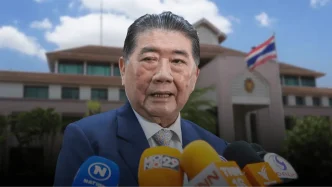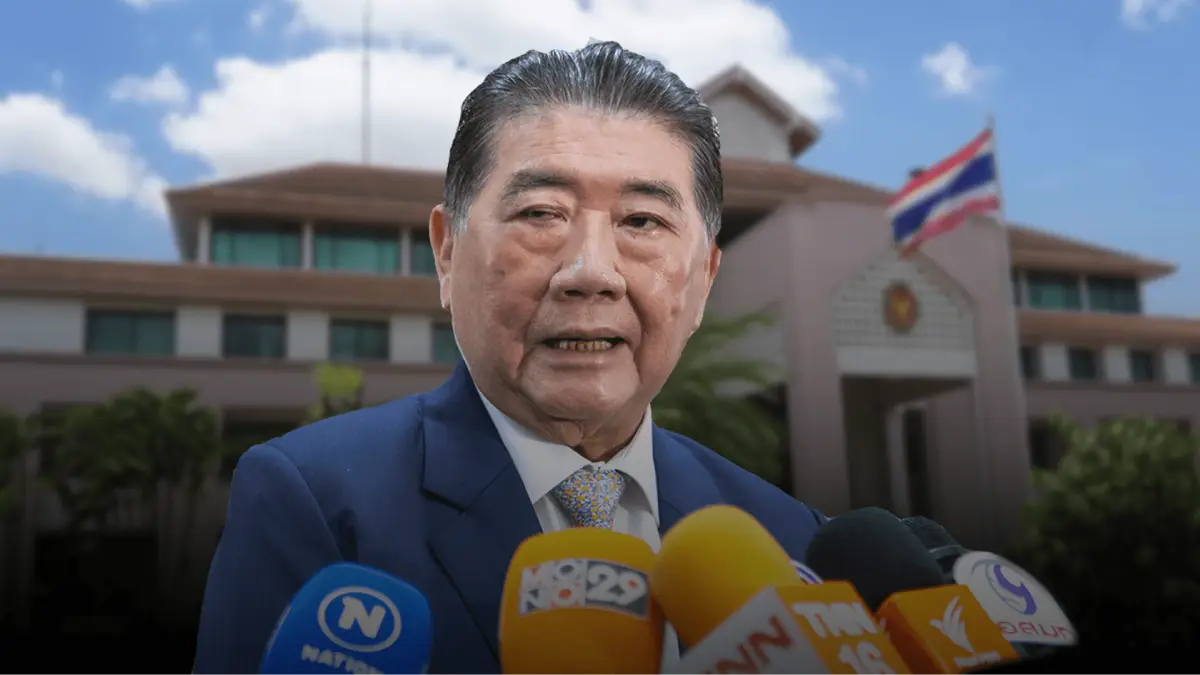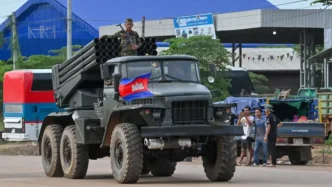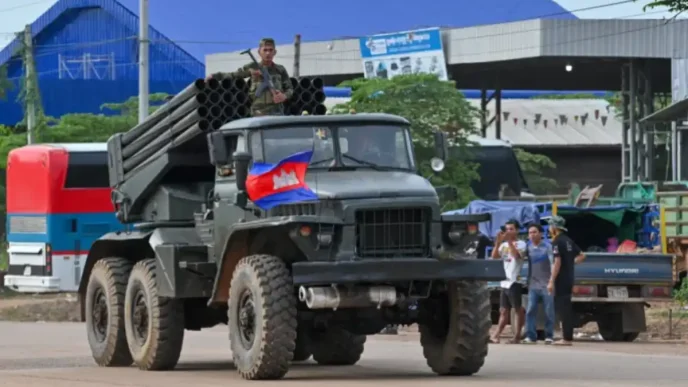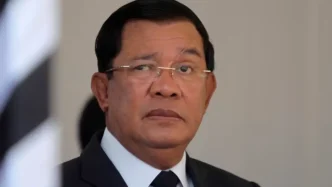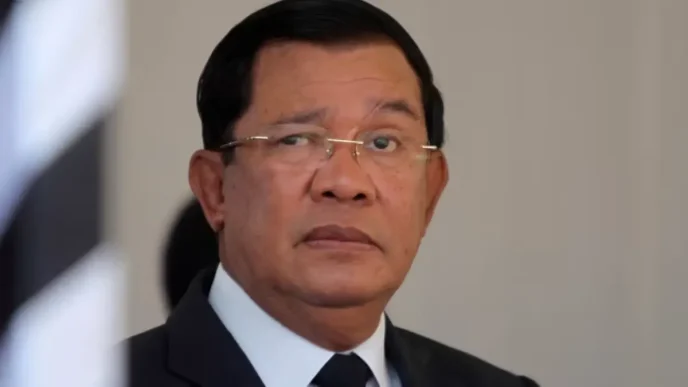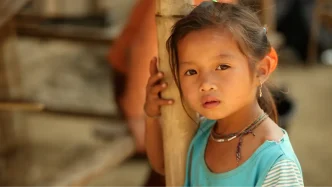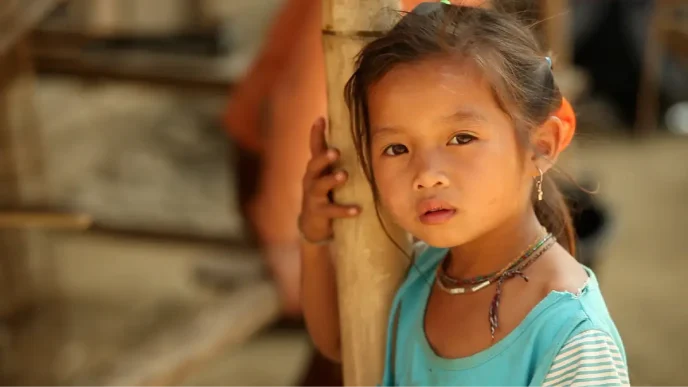Thailand has taken the dramatic step of recalling its ambassador from Phnom Penh and expelling Cambodia’s envoy from Bangkok, marking a significant downgrade in diplomatic relations between the two Southeast Asian neighbors. The move, announced on July 23, 2025, follows a series of landmine incidents along their shared border, with the latest leaving a Thai soldier severely injured. As tensions soar over disputed territories and accusations of newly laid mines, the region braces for the potential fallout of this escalating conflict.
Landmine Incident Sparks Diplomatic Crisis
The immediate trigger for Thailand’s actions was a landmine explosion in July 2025, in the disputed Huai Bon area of Ubon Ratchathani province, near the Cambodian border. Sergeant Major Pichitchai Boonkorat, a Thai soldier, sustained severe injuries, losing his right leg, after stepping on a mine at approximately 4:55 PM. He was evacuated just over 20 minutes later, but the incident has reignited longstanding tensions over the border region, particularly around areas like Prasat Ta Muen Thom, an ancient temple claimed by both nations.
Acting Prime Minister Phumtham Wechayachai, who also serves as Deputy Prime Minister and Acting Interior Minister, confirmed the government’s decision to downgrade diplomatic ties. “We have considered the situation and will downgrade diplomatic relations” Phumtham stated, explaining the recall of Thailand’s ambassador to Cambodia and the expulsion of Cambodia’s envoy from Bangkok. The Thai Ministry of Foreign Affairs has been instructed to lodge a formal protest, signaling the gravity of the situation.
In addition to the diplomatic measures, Thailand has ordered the immediate closure of all border checkpoints under the jurisdiction of the 2nd Army Area, halting tourist access to these crossings. This decision further isolates the border region, which has long been a flashpoint for conflict due to overlapping territorial claims and historical grievances.
Accusations of Newly Laid Mines
Thai authorities have accused Cambodia of planting new landmines in areas previously deemed clear of such devices. Phumtham cited intelligence from the Ministry of Defence, relayed by Deputy Defence Minister General Natthapol Nakpanich, indicating that the patrol unit struck a recently laid mine. “This proves these are newly laid mines, all appearing around the same time” Phumtham said. “Therefore, we have elevated our retaliation to the most appropriate level.”
The presence of landmines along the border is a grim reminder of past conflicts, including skirmishes over disputed territories that have flared up intermittently for decades. Thailand claims that the recent spate of incidents, which have injured at least five soldiers in recent months according to local reports, points to deliberate actions by Cambodian forces or affiliated groups. However, Cambodia has firmly rejected these accusations, denying any involvement in planting new mines and calling for a joint investigation to clarify the origins of the devices.
Historical Context of the Border Dispute
The Thai-Cambodian border dispute dates back centuries, rooted in colonial-era treaties and competing national narratives over cultural heritage sites like Prasat Ta Muen Thom, also known as Prasat Ta Moan Thom in Khmer. Located in Oddar Meanchey province on the Cambodian side and visible from Thailand’s Surin province, the ancient temple has been a focal point of contention. Both nations claim sovereignty over the surrounding land, with military presence from each side often stationed in close proximity, as evidenced by images of soldiers standing guard as recently as March 26, 2025.
The dispute gained international attention in 2011 when deadly clashes erupted near another contested site, Preah Vihear Temple, prompting the International Court of Justice (ICJ) to issue a ruling that awarded the temple to Cambodia but left much of the surrounding territory unresolved. Despite periodic attempts at dialogue, including joint border committees, mistrust persists, fueled by domestic political pressures in both countries to assert territorial claims.
Landmines, a legacy of Cambodia’s civil war and regional conflicts during the late 20th century, remain a pervasive danger in border areas. While demining efforts have made progress, with international support from organizations like the United Nations and various NGOs, the remote and disputed nature of these zones complicates clearance operations. The recent incidents have raised questions about whether new mines are indeed being laid, and if so, by whom—a question that neither side has definitively answered with public evidence.
Cambodia’s Response and Regional Implications
Cambodia’s rejection of Thailand’s accusations has added another layer of complexity to the crisis. Official statements from Phnom Penh, as reported by regional outlets, emphasize that Cambodia remains committed to peaceful resolution and denies any role in the landmine incidents. The Cambodian government has called for restraint and proposed bilateral talks to de-escalate tensions, though no formal agreement on a meeting has been confirmed at the time of writing.
The diplomatic drawdown carries significant implications for Southeast Asia, a region already grappling with internal and external challenges, from Myanmar’s ongoing crisis to maritime disputes in the South China Sea. Thailand and Cambodia are both members of the Association of Southeast Asian Nations (ASEAN), which prioritizes non-interference and consensus in resolving disputes. However, ASEAN’s track record on mediating bilateral conflicts is mixed, and there is little indication that the bloc will intervene decisively in this case.
Economically, the closure of border checkpoints could disrupt cross-border trade and tourism, sectors that have historically bolstered local communities on both sides. Thailand’s 2nd Army Area oversees key crossings that facilitate the movement of goods and people, and their closure may exacerbate economic strain in border provinces already affected by sporadic violence and underdevelopment.
Human Cost and Broader Concerns
Beyond the geopolitical ramifications, the human cost of the border tensions is stark. Sergeant Major Pichitchai Boonkorat’s injury is a tragic reminder of the risks faced by soldiers patrolling these volatile areas. The loss of a limb not only impacts the individual but also reverberates through families and communities, underscoring the urgent need for demining and confidence-building measures between the two nations.
Moreover, the presence of landmines poses a threat to civilians, including farmers and villagers who live near the border. Humanitarian organizations have long warned of the indiscriminate danger of unexploded ordnance, with children often among the casualties in post-conflict zones across Cambodia. The renewed focus on landmines could spur international donors and demining agencies to redouble their efforts, though funding and access remain persistent challenges in politically sensitive areas.
Domestic Political Dimensions
In Thailand, the government’s hardline stance may also reflect domestic political calculations. Acting Prime Minister Phumtham Wechayachai, navigating a complex political landscape amid recent transitions in leadership, could be leveraging the border issue to project strength and unity. National security concerns often resonate with the Thai public, particularly in the context of historical rivalries with Cambodia, and a firm response may bolster the administration’s credibility.
Similarly, in Cambodia, the government faces its own pressures to maintain a resolute posture. Prime Minister Hun Manet, who assumed office in 2023, operates under the shadow of his father Hun Sen’s long tenure and the ruling Cambodian People’s Party’s emphasis on national sovereignty. Conceding ground—literally or figuratively—on border issues could invite criticism from domestic opponents, even as the government seeks to balance internal stability with international relations.
Looking Ahead: A Path to De-escalation?
As Thailand and Cambodia navigate this latest crisis, the path to de-escalation remains uncertain. The recall of ambassadors and border closures signal a deepening rift, but they also leave room for diplomatic backchannels to prevent further escalation. Joint investigations into the landmine incidents, perhaps with neutral third-party oversight, could provide clarity and rebuild trust, though mutual suspicion may hinder such cooperation.
International actors, including ASEAN and major powers with influence in the region like China and the United States, may also play a role in urging restraint. China, a key partner to both nations through its Belt and Road Initiative investments, has a vested interest in regional stability, while the U.S. has historically supported demining and peacekeeping efforts in Cambodia.
For now, the border remains a literal and figurative line of tension, with soldiers and civilians alike caught in the crosshairs of a dispute that defies easy resolution. As diplomatic relations cool, the question looms: will this incident be a catalyst for renewed dialogue, or a precursor to deeper conflict?

